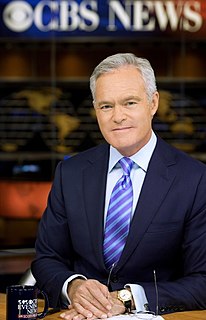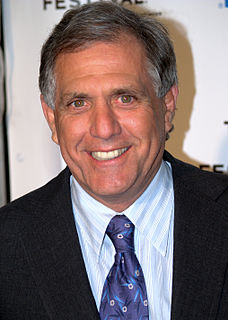A Quote by Robert Waterman McChesney
A big part of my book deals with the caliber of journalism. Our journalism in general is deplorable, and on elections in particular it's very ineffectual. There are a lot of problems, a lot of them having to do with to problems within the professional code of journalism, which defines its role as the regurgitation of what people in power say. Another big problem is that we allow people with money to basically buy what's talked about in campaigns through running TV ads.
Related Quotes
Journalism continues to go south, thanks to big media and its strangulation of news, and there's not much left in the way of community or local media. Add to that an internet that has not even started thinking seriously about how it supports journalism. You have these big companies like Google and Facebook who run the news and sell all the ads next to it, but what do they put back into journalism? It isn't much.
This is a very proud moment for journalism. I think The New York Times and The Washington Post are genuine champions in this moment. The role that they are playing in democracy is the role that you hear about journalism playing in civics classes. Other people are doing great work, but the Times and the Post have really been leaders. The public is watching, and they are hungry. They know something is wrong, there's a lot of anxiety out there. There's a real sense that the mission of journalism is very clear.
Very rarely are you going to see the large shareholder or CEO of a corporation march into a newsroom and say, "Cover this story, don't cover that." It's a much more subtle process. The professional code adapts, but what we try to see, is how commercial and corporate pressure shape both the professional code and the sorts of things that are considered legitimate journalism and illegitimate journalism.
Anyone who does investigative journalism is not in it for the money. Investigative journalism by nature is the most work intensive kind of journalism you can take on. That's why you see less and less investigative journalism at newspapers and magazines. No matter what you're paid for it, you put in so many man-hours it's one of the least lucrative aspects of journalism you can take on.
Almost everything I've learned about journalism has been from other friends who are journalists, taking advantage of the money I hope they don't think they threw away at j-school. I studied comparative literature, but the professional vagaries of journalism I've learned through other people's trial and error, and my own.
I respect journalism. I was always very aware of journalism from a very broad point of view, but I'd say my baptism by fire was doing the Donald Margulies play Time Stands Still. That for me was a real education because I spent a lot of time with some incredible journalists, war reporters particularly - Bob Woodruff, Dexter Filkins - people who were very helpful in painting the picture for me and reading the accounts of people and what they experienced, a lot of PTSD.
A lot of people involved with celebrity journalism have interesting ideas about the people they want to write about going into the interview. Then as soon as they actually sit down with that person, they basically ask the questions they think journalists are supposed to ask, and they start viewing themselves almost as a peer of the subject. Like they're going to become friends. That's why most celebrity journalism is so terrible.
I feel like a lot of people involved with celebrity journalism have interesting ideas about the people they want to write about going into the interview. Then as soon as they actually sit down with that person, they basically ask the questions they think journalists are supposed to ask, and they start viewing themselves almost as a peer of the subject. Like they're going to become friends. That's why most celebrity journalism is so terrible.
I'm always very careful to make the distinction between music criticism and music journalism. A lot of people don't. But criticism doesn't require reporting. You can write criticism at home in your underwear. On the other hand, journalism takes legwork - you have to get out there and see things and talk to people.
































